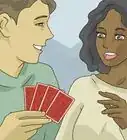This article was co-authored by wikiHow Staff. Our trained team of editors and researchers validate articles for accuracy and comprehensiveness. wikiHow's Content Management Team carefully monitors the work from our editorial staff to ensure that each article is backed by trusted research and meets our high quality standards.
There are 7 references cited in this article, which can be found at the bottom of the page.
This article has been viewed 553,106 times.
Learn more...
Becoming a magician is a fun way to impress your friends and family at parties or gatherings. If you love impressing audiences routinely, you could become a professional magician. You’ll also need to start learning simple tricks, so that you can work your way up to more complex illusions. Start by learning simple but effective tricks, including card tricks, misdirection tricks, and coin tricks.
Things You Should Know
- Start by learning the fundamentals, like the back palm vanish, card rise, and coin knuckle roll.
- Read magic books and watch videos of magicians online to learn more about the craft.
- Consider asking a local magician to mentor you.
Steps
Learning About Magic and Magicians
-
1Learn some basic magic tricks. There are tricks out there for all levels of magicians. Simple sleight of hand tricks and card tricks are a great place for younger magicians to begin! If you’re enjoying the tricks from the linked article, learn more fundamentals like the back palm vanish, card rise, or coin knuckle roll. Some of these tricks may require some preparation before performing for an audience. For others, you may want to ask a friend to assist you with the trick.
- While all magicians know sleight of hand, not all of them specialize in these close-up tricks. You can also look into niche fields of magic, including:
- Club magic: working in front of medium audiences in a local magic club.
- Stage magic: working in front of large audiences in a large auditorium or performance venue.
- Escape tricks: escaping from handcuffs, strait jackets, or heavy chains in front of an audience.
- Mentalism: talking with audience members and performing tricks of clairvoyance or telepathy.
- While all magicians know sleight of hand, not all of them specialize in these close-up tricks. You can also look into niche fields of magic, including:
-
2Watch other magicians perform. Masters of the art know what an audience wants to see, so pay attention to what types of tricks and what styles modern magicians use. See which magicians appeal to you the most, and try to think about what about their style and approach to the audience appeals to you. You can watch contemporary magicians or even watch videos of some famous magicians to see how they master their art. Here are some magicians you may want to observe carefully:
- David Copperfield
- Tommy Wonder
- Lisa Menna[1]
- Sue-Anne Webster
- Doug Henning
- Penn & Teller
- Harry Houdini
- S.H. Sharpe
- Criss Angel
- Lance Burton
- David Blaine
- Shin Lim
Advertisement -
3Read magic books and biographies of magicians. Most magicians started off by going to the library and checking out books about magic and reading them from cover to cover. This can help you have an understanding of the discipline that is truly required to be a magician. Reading and researching will also help you develop skills in private rather than making mistakes in front of an audience[2] Check out books like:
- The Tarbell Course in Magic Volumes 1-8, by Harlan Tarbell and Ralph Reed
- Books of Wonder, by Tommy Wonder
- Strong Magic, by Darwin Ortiz
- Drawing Room Conjuring, by Professor Hoffman
- The Fitzkee Trilogy, by Dariel Fitzkee
- Mark Wilson Complete Course in Magic, by Mark Wilson
- The Amateur Magician’s Handbook, by Henry Hay
-
4Stream magic videos online. Though you should still use books to learn about being a magician, online streaming videos or video downloads can also help you hone your craft. There are thousands of them out there and you have to make sure that you’re watching a video from a reputable magician and that you’re not paying for a cheap video with tricks that are too easy.[3]
- If the videos are made by a knowledgeable, reputable magician, they will feature a variety of tricks which the magician effectively explains. Avoid videos that offer poor explanation, that only present information on very simple tricks, or are made by a clearly incompetent magician.
-
5Get in touch with other magicians via an online forum. Online communities of amateur and professional magicians can provide useful, practical information to budding magicians. Helpful forums for curious individuals interested in becoming a magician include the Theory11 forum (https://www.theory11.com/forums/cat/magic-forum/), The Magician’s Forum (https://www.themagiciansforum.com/), and The Magic Café (https://www.themagiccafe.com/forums/index.php). Once you find a forum you’d like to participate in, introduce yourself and say something like:
- “I’m interested in learning how to perform magic tricks for my family and friends. What beginner tricks would you recommend, and what sort of equipment would I need for these.”
- “Hi! I’m starting to learn about performing magic; what’s a great place near [your city] to see magic acts?”
Developing Your Abilities and Tricks
-
1Ask a magician to mentor you. Once you’ve gained some skills, reach out to a local professional magician and ask if you can be an apprentice and receive some helpful feedback. You’d be surprised by how helpful many professional magicians can be, remembering when they were starting out.[4] You just have to be receptive to feedback and be ready to take some criticism that can improve your craft.
- A local magician that you can talk to in person will be more useful than an online mentorship. Attend local magic shows, and approach one of the more experienced magicians.
- Say something like, “I enjoyed your magic act, and I’m trying to become a magician myself. I’d love to show you some tricks I’ve been working on, and to get your feedback on how I can improve.”
- The magician might not show you any tricks, but they could give you tips on how to perform your first tricks like a pro. If you don’t have this advantage, try to learn from your mistakes as much as possible.
-
2Be original in your tricks and performance style. Once you’ve mastered the basic tricks and have gained your footing as a magician, then it’s time to be your own kind of magician.[5] You can’t just rely on the tricks of others if you really want to succeed. Of course, you should have some (at least 6 or 8) old and famous magic tricks in your act, such as the cup and balls magic trick.
- No one wants to see an unoriginal magic act being performed over and over.
-
3Innovate new tricks or trick combinations. Think of an idea that has never been done before. For example, make strings disappear from a guitar. Then, decide how you will accomplish the effect. Now, think of a way to make the trick convincing. Once you’ve got all the parts planned out, start practicing the trick.
- The public may enjoy some old classics, but you should avoid certain cliché tricks, like pulling a rabbit out of a hat. (Instead, make it appear in a box!)
- As a more advanced technique, try to merge several tricks together to create a new effect. For example, after you turn a ball into a tissue, make a coin appear out of the tissue; then, make the coin go through your hand.
-
4Develop a unique style of performing. Don’t steal or explicitly imitate the style of other magicians. You may take a deceased magician’s style and put a unique twist on it, but never take a modern magician’s style. It’s better to have unique style and perform previously performed tricks, rather than take someone else’s style and perform your own tricks.
-
5Take acting classes at a local community theater. These will help you to gain theater experience, especially if you work with a good director. Magic is theater and a magician is a performer. You don’t have to go to acting school, but if you’re shy in front of a crowd or just want to feel more comfortable in front of a crowd, then take an acting class or two to step up your game.[6]
- Group acting lessons are commonly provided by local community theater groups. Look for flyers around where you live, or search online. Look for something like “community theater beginning acting lessons.”
- Small-scale group classes are typically inexpensive, and sometimes may be free.
-
6Improve the flexibility of your arms, fingers, and hands. It’s crucial for magicians to have dexterous, quick fingers. Start with coin manipulation. It’s easiest to master, but it is still challenging. Learn how to palm the coin on your hand. Find a spot in your palm where the coin will stick the most even if you open/close your hand, or turn it upside down. Then, learn some simple illusions with coins.
- For example, pretend to put a coin in your left hand when really it’s still located in the right hand.
- After mastering coin manipulation, you can move on to ball manipulation and, finally, card manipulation.
-
7Keep your sleights up to date. Check out what other magicians in your field are up to by going to local shows. Talk to your magician friends to see what they’ve been working on. Don’t do the same old thing one year after the next or people will start to think of your magic act as outdated, repetitive, or dull.
Handling the Logistics of a Magic Show
-
1Organize every detail of your magic show. Before performing a show, be sure to rehearse it many times. Rehearsal will help you perform more confidently. Ask your family and friends if you can run through your entire magic show in front of them. Memorize the tricks you’ll perform and the sequence in which they’ll occur, so that you won’t pause or seem confused between tricks.
- Have a dress rehearsal in the performance space, especially if you’re using any equipment in your show.
-
2Wear a costume that fits the style of your act. Your costume should provide plenty of room for storing cards, coins, rabbits, and other equipment. A traditional costume for magician is a black jacket, a red formal vest that goes under it, and a pair of black pants that go with the jacket. The jacket should have many little pockets on its inside for storage of secret coins, cards, balls, etc.
- Remember that comfort is also important when you make your costume. If you’re feeling itchy or stifled in a costume, then it doesn’t matter if you look incredible.
- In a traditional costume, the vest should have big pockets on the inside so you can make big objects, such as plates, disappear/appear.
- Also consider using the same basic outline of the costume to create a more modern one.
-
3Develop some artistic talent and sense of humor. Try to narrate or tell a story with your tricks. Be humorous, charming, and funny. If your magic act is boring, no one would want to watch it. Remember to tell some jokes every once in a while that relate to the trick.[7]
- Even if you want your act to have a serious, mysterious tone, you still need to develop people skills so you can intrigue an audience.
- For example, tease audience members that they’ll be amazed by the trick you’re about to perform. Hype up your own trick before you perform it.
-
4Keep up a banter with your audience. Being a good magician means more than wowing your audience with one trick after another. You need to know how to charm the crowd while you’re performing the tricks. If you want to mesmerize your audience, then you have to be able to captivate them, keep them interested, and even distract them when you’re in the middle of a difficult trick.[8]
- Say something like, “These people in the front are going to fall out of their chairs when they see what I do next!”
-
5Learn how to read the audience. Working the audience is a big part of being a great magician. Watch how your audience responds to your tricks, and adjust your performance style accordingly. Is the crowd overly enthusiastic and up for anything? Too critical or bored? A bit tipsy? Know the mood of your crowd and tailor your tricks to better please viewers.[9]
- This will require some improvisation. You may see that your opening trick is wrong for the audience you have and will have to switch things up at the last minute.
- If your crowd is enthusiastic and supportive, you could try some bold, crowd-pleasing tricks. If they’re bored or unimpressed, take your act back to the basics and show that you can perform simple ticks effectively.
- A tipsy audience can be tricky—don’t encourage them to heckle, but have fun with the audience and engage in some banter.
Getting Work as a Magician
-
1Start performing for friends and acquaintances. When you’re just starting out, don’t expect to work a corporate event with 500 people. You’ll have to start with the people you know, such as your friends, family, or acquaintances. Performing in front of a smaller, more intimate audience will make you more comfortable when it’s time to get in front of crowds of strangers.[10]
- It can take time to build up enough skills to get work this way. Make sure that you’re really ready when you start performing for an audience and you’ll raise your chances of getting noticed.
-
2Take your act to the streets. Some magicians like to work as street performers and to try their tricks out in front of random crowds. Your only pay will be whatever people throw into your magician’s hat, and you may be faced with some tough audiences. However, this is a great way to build up nerves of steel and to get more comfortable in front of anything an audience throws your way.
- If you choose to go this route, then make sure you’re not taking over another magician or street performer’s location. People are pretty touchy about their territory and you don’t want to get into a conflict.
- Also make sure that you’re legally allowed to perform in the area that you choose to set up in.
-
3Market yourself in your local community. If you really want to build up a reputation as a magician, then you have to market yourself. Make a professional-looking business card, take your career to social media, and make a professional-looking website. This will help people learn more about you when they’re looking to hire a magician for an event.[11]
- Give out your business card as often as you can.
- Stop by local magic shops and ask if they need anyone to perform or if you can leave your business card with them.
-
4Work small gigs at first. As you build a following, you can start working at real gigs: kids’ birthday parties, hospitals, churches, adult birthday parties, or really anything you can get your hands on. This will be a great way of cutting your teeth in the world of magic and getting a sense of what kind of audience you really want to perform for and what audiences you like best.[12]
- This can help you discover what kind of a magician you want to be. For example, maybe you’ll see that you like exclusively performing for adults or only children. Be prepared to do this for a while. It can take years to rise above this level.
- Find small gigs by, for example, performing at a comedy and magic open mic. Ask around in the audience after the show to see if any of the patrons would be interested in hiring you to perform magic.
- After the open mic, you can also talk to visiting professional magicians and ask if they know of any upcoming gigs.
-
5Network with other professional magicians. Once you’ve been around a while, you’ll start to attend events for magicians and will work bigger gigs. You’ll hopefully already have some contacts in the magic world from your previous gigs and from when you asked professionals for help. Continue to attend as many events as you can and promote yourself. The more contacts you make, the more likely you’ll be to find work.[13]
- If you make networking a priority, then you’ll be more likely to meet a manager or an agent.
-
6Join a magic club. If you want to be a masterful magician and to be in touch with magicians in your area and worldwide, then you should join a magic club so you can see what the latest magicians are working on and continue to hone your craft.[14]
- Some of the most reputable clubs include The International Brotherhood of Magicians and The Society of American Magicians. You can also join the online club, The Magic Classroom.
- You can enroll the join these clubs online, although magic clubs typically require a fee. For example, it costs $65 USD annually to join The Society of American Magicians.[15]
-
7Get a manager or an agent. An agent or a manger can be the key to a magician’s success. If you want to really make it as a magician, then you may need a manager who will help you find more work, promote you, and keep the work coming. You can continue to work independently, but these people can be valuable for your career.[16]
- An agent can be useful in this regard too, but they may get up to 15-20% of the commission for the gigs that they can find you.
-
8Perform as a magician as your full-time job. If you’ve marketed yourself and have worked enough gigs, then you may have been lucky enough to make magic a full-time job. Still, if you have made it to the big leagues, then here are some of the events you may work:[17]
- Corporate functions
- Country clubs
- Upscale charity fundraisers
- High end private events, such as anniversaries, elegant children’s parties, or holiday parties.
Community Q&A
-
QuestionHow can I be a magician if I am young and want to do it now?
 Frail HunterCommunity AnswerActually, you should learn now! All great and famous magicians are only so good because they started at a young age. They didn't have the sources we do now, websites, YouTube, all these places are a great way to learn.
Frail HunterCommunity AnswerActually, you should learn now! All great and famous magicians are only so good because they started at a young age. They didn't have the sources we do now, websites, YouTube, all these places are a great way to learn. -
QuestionDoes it matter how old I am when I start learning magic?
 Community AnswerOf course not. You can learn magic at any age.
Community AnswerOf course not. You can learn magic at any age. -
QuestionWhat if the heckler keeps going on and on about how he/she knows the trick?
 Community AnswerIn a group situation, talk about the fact that they don't know, and if they do, then they will spoil all the fun for others. Magic to me isn't about secrets but rather enjoyment for the audience and magician. In a one on one, just say the truth. If they don't want to watch, they don't have to. In a gig, find a way to simply avoid them without losing credibility.
Community AnswerIn a group situation, talk about the fact that they don't know, and if they do, then they will spoil all the fun for others. Magic to me isn't about secrets but rather enjoyment for the audience and magician. In a one on one, just say the truth. If they don't want to watch, they don't have to. In a gig, find a way to simply avoid them without losing credibility.
Warnings
- Never explain the secret of the trick to anyone just to show off your magic skills. This is exposure and harms other magicians’ careers.⧼thumbs_response⧽
- Never perform a magic trick twice in a row, no matter how much the audience begs you.⧼thumbs_response⧽
- Never argue with the audience. If someone makes a negative comment (for example, “I think I saw an extra penny behind your back!”), don’t be distracted. Just ignore the comment and continue the trick. Be humorous and only answer public’s questions/comments (if necessary) after you’re done with your trick.⧼thumbs_response⧽
References
- ↑ https://www.theatlantic.com/entertainment/archive/2013/03/why-are-there-so-few-female-magicians/274099/
- ↑ http://www.artofmanliness.com/2010/08/18/so-you-want-my-job-magician/
- ↑ http://www.falseshuffle.com/articles/how-to-be-a-magician
- ↑ http://www.artofmanliness.com/2010/08/18/so-you-want-my-job-magician/
- ↑ http://rebelmagic.com/become-professional-magician/
- ↑ http://www.artofmanliness.com/2010/08/18/so-you-want-my-job-magician/
- ↑ http://www.telegraph.co.uk/men/the-filter/become-magician/
- ↑ http://www.falseshuffle.com/articles/how-to-be-a-magician
- ↑ http://www.telegraph.co.uk/men/the-filter/become-magician/
- ↑ http://noelqualter.com/magician-articles/magicians-guide/
- ↑ http://noelqualter.com/magician-articles/magicians-guide/
- ↑ http://www.telegraph.co.uk/men/the-filter/become-magician/
- ↑ http://rebelmagic.com/become-professional-magician/
- ↑ http://www.telegraph.co.uk/men/the-filter/become-magician/
- ↑ https://magicsam.site-ym.com/general/register_member_type.asp?
- ↑ http://noelqualter.com/magician-articles/magicians-guide/
- ↑ http://www.artofmanliness.com/2010/08/18/so-you-want-my-job-magician/
About This Article
To become a magician, start by mastering some basic tricks, like disappearing coins, card tricks, and basic sleight of hand. As you develop your skills, contact other magicians for advice via an online forum. Also, make sure to work on your own tricks, even if they are updates of classic pieces. For example, instead of pulling a rabbit out of a hat, pull one out of a box. You can also invent your own tricks, like making guitar strings disappear off of a guitar! No matter what tricks you decide on, make sure you have a unique style. To learn how to handle the logistics of putting on a magic show, keep reading!

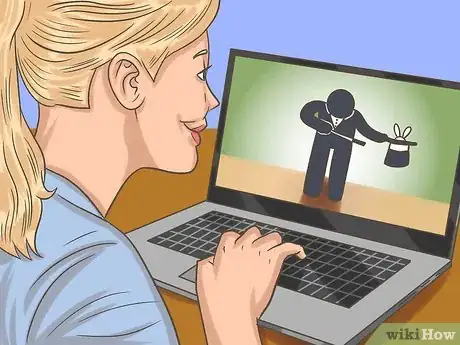
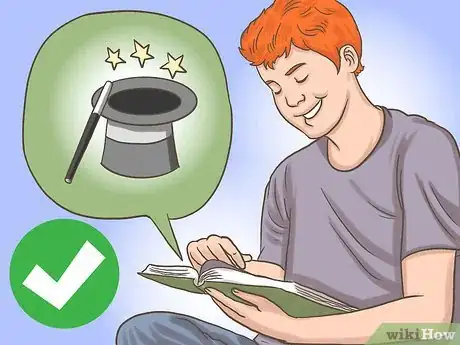
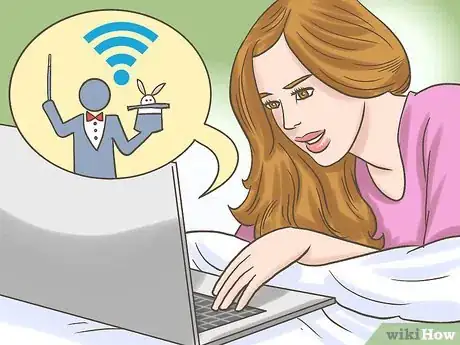
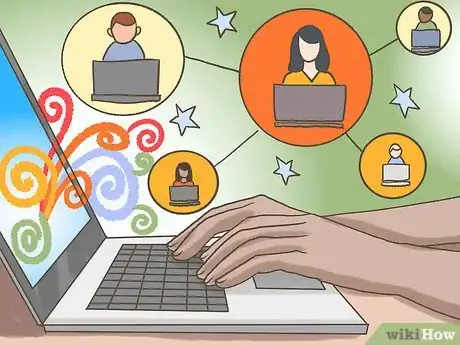


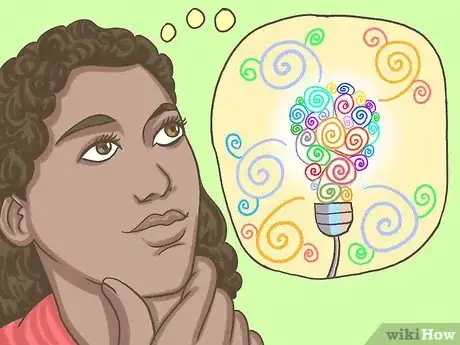
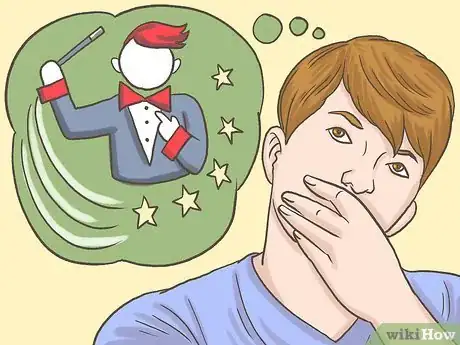
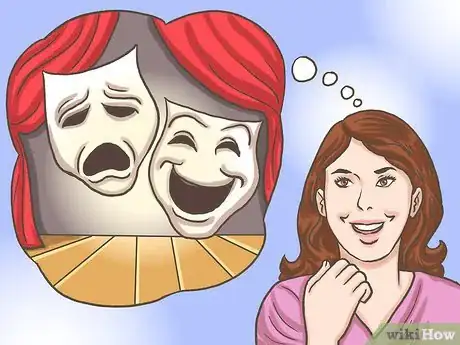
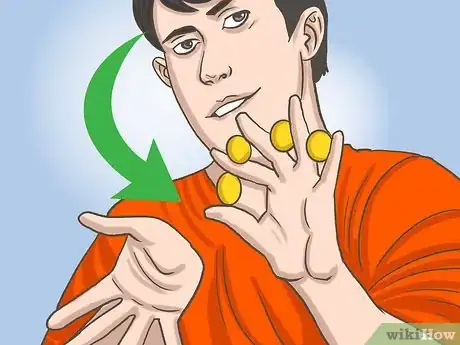
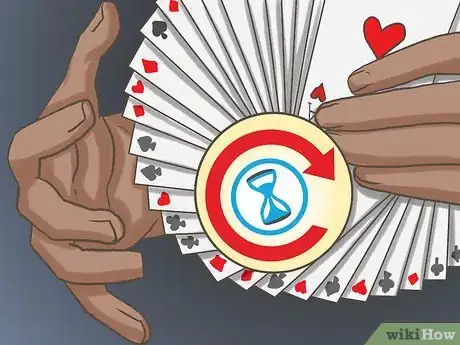
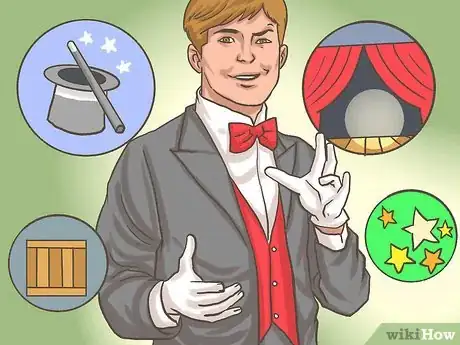
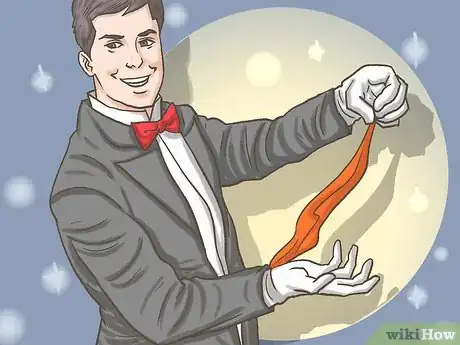
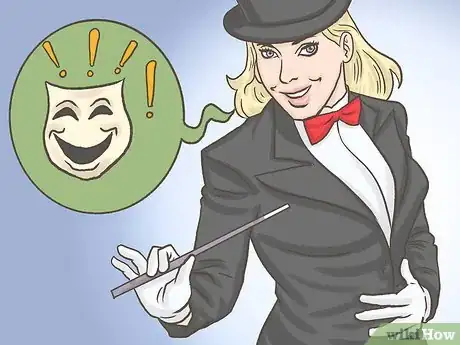
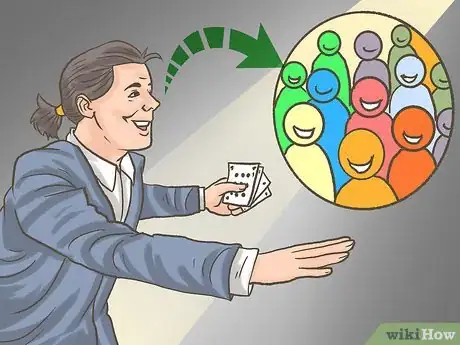
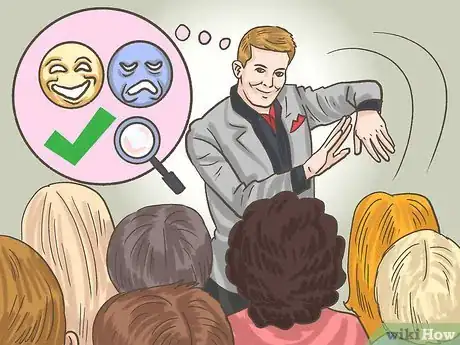
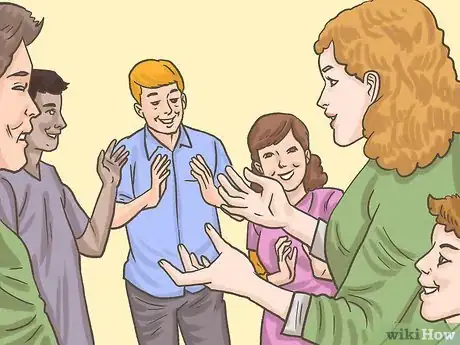

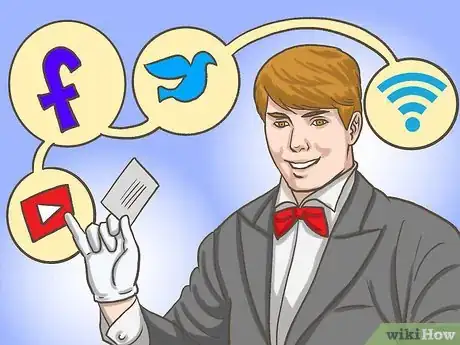
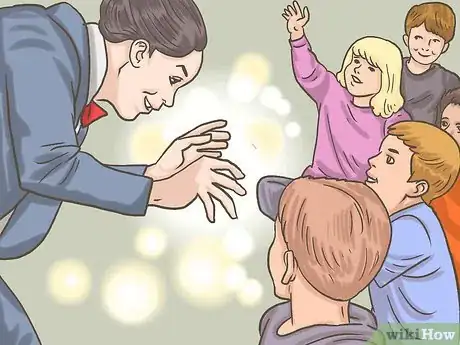
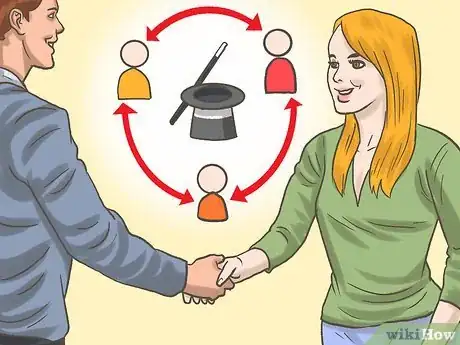
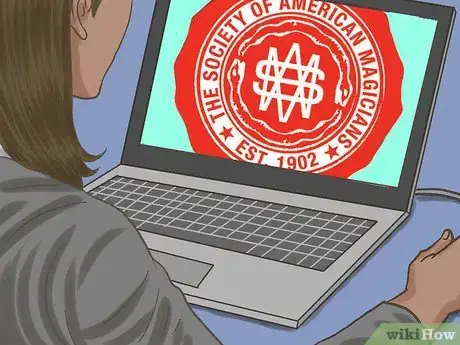
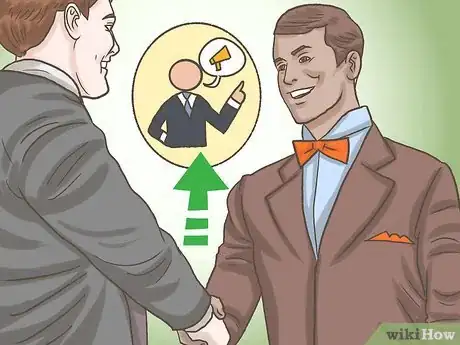
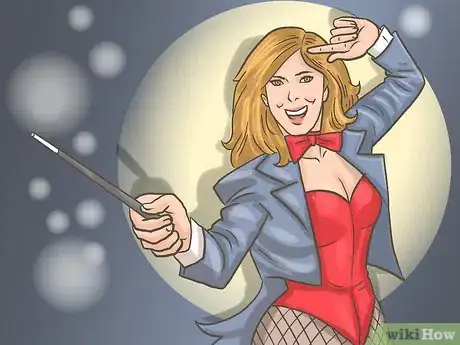
-Step-30.webp)



















-Step-30.webp)
